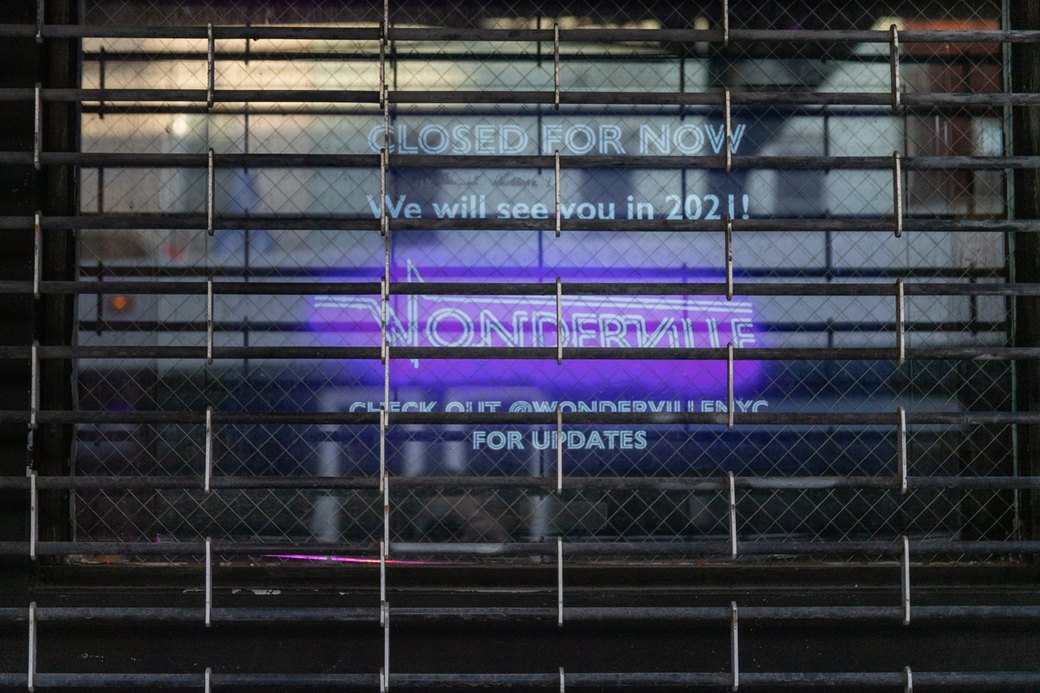If a business impacts the livelihoods of thousands of New Yorkers can it really be ‘non-essential’?
Seventy-five bars, restaurants, and venues in New York City, including many in North Brooklyn, have all joined a lawsuit leveled against Governor Cuomo this month over the terms of last spring’s Executive Order 202, which they say has been changed at least 87 times since then and has resulted in a “Kafkaesque nightmare.”
Some recognizable names in the suit include Our Wicked Lady, which is seeking almost $500,000 from the state; Ridgewood’s Bonus Room, which wants $275,000 and the miniature empire of Brooklyn bars and restaurants managed by Rafaello VanCouten, including Claudia’s in East Williamsburg and C. Lo’s in Ridgewood and which are seeking a whopping $10.3 million total from the state. The Richardson in East Williamsburg says that the restrictions have shuttered it’s business since the start of the pandemic and it’s cost them almost half a million dollars.The Williamsburg indie venue Baby’s All Right is also part of the million-dollar club and wants $2.6 million. The case is captioned in New York federal court as Our Wicked Lady LLC et al v. Cuomo.
Executive Order 202, was first enacted March 7th, 2020 and had declared vast swaths of the economy “non-essential.” Among its many modifications was one issued in July that permitted them to re-open but “subject to new requirements that they must only serve alcohol to people who are ordering and eating food.”
The Restaurants argue that the Executive Order deprived them of their civil rights to operate their businesses and imposed “Draconian” restrictions.
Our Wicked Lady, for instance, says it was forced to cease business operations from March 15th to June 30th, in addition to having to partially cease operations since then. Baby’s All Right claims it was forced to lay off 59 of its 60 employees. Bars like the Anchored Inn and Carmelo’s, among many others bars in Brooklyn, say they have been forced to close for the winter.

The suit reads: “For the employees and owners of these businesses to have their livelihoods labelled ‘non-essential’ is the height of arrogance. It is without question essential for the plaintiffs to be able to feed, clothe and house their families through the fruits of their labor.”
Among the plaintiffs is Wonderville, the arcade-themed bar and venue that had taken over the space that used to be Secret Project Robot. They are seeking at least $100,000 from the state.
Mark Kleback, one of its founders, told Bushwick Daily that the regulations had ended up creating a lot of untenable requirements. By grouping every business with an New York’s State Liquor Authority license into the umbrella of a “restaurant” contributed to the nightmare, the loss of thousands in revenue, and forced the entire staff to be laid off.
“One of the issues we found is complying with ‘no bar service,’” says Kleback.
“We didn’t offer ‘table service’ prior to the pandemic. We also don’t have a kitchen, so we were serving peanut butter and jelly sandwiches and ramen noodles, most of which the patrons didn’t want.”
The result was exorbitant food waste, fortunately donated to community refrigerators.
The SLA states that ‘non-essential’ businesses include but are not limited to concert venues, venues for other in-person performances or presentations in front of an in-person audience. According to the suit, the state did not give any business a chance to present their case for remaining open, remaining unrestricted, or requesting being designated “essential.”

Data provided by the city’s health department states that indoor dining is responsible for only 1.4% of COVID spread, compared to 74% that originates from household interactions and gatherings. All of the restaurants in the suit argue that they could have safely operated their businesses and even retrofitted their establishments to comply with restrictions, had they been consistent.
“We are lucky in that we have a private backyard, and spent a lot of 2020 renovating it to allow for more outdoor seating” Kleback says.
“However, we have a bus stop and fire hydrant in front, so building outdoor street seating was not an option for us. Without a backyard, I don’t think we could have survived last year.”
Top photo by Vanessa Hock.
For more news, sign up for Bushwick Daily’s newsletter.
Join the fight to save local journalism by becoming a paid subscriber.





